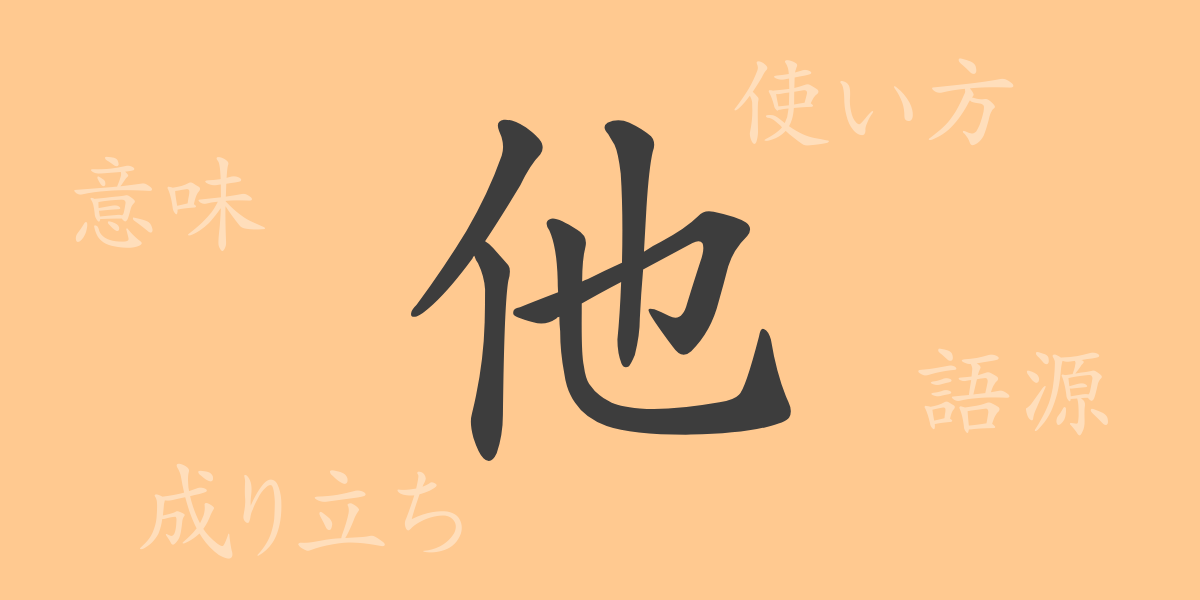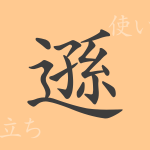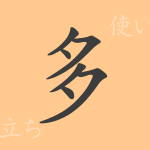Kanji characters enrich our linguistic world through their forms and meanings, and the Japanese common Kanji “他” (ほか)(た) (hoka)(ta) is no exception. This single character embodies deep philosophical connections between individuals and society, and between self and others. This article uncovers everything from the origin of “他” to its modern usage and characteristics as a Kanji character.
Origin of “他” (ta)
The Kanji “他” traces its roots back to ancient Chinese oracle bone script. Originally used to denote “彼” (he or that), it was employed to refer to other people or different entities. Although its form has evolved over time, the fundamental meaning has remained unchanged.
Meaning and Usage of “他” (ta)
Essentially, “他” conveys meanings such as “other,” “someone else,” or “different.” It is used to indicate subjects that are external to oneself or the main topic, serving as a key term to denote otherness. For instance, “他人” (たにん) (tanin) means someone else, and “他所” (たしょ) (tasho) refers to a place other than one’s own.
Readings, Stroke Count, and Radical of “他” (ta)
The Kanji “他” is widely used within the Japanese language, and understanding its features can deepen our comprehension of Kanji.
- Readings: On’yomi “タ” (ta), Kun’yomi “ほか” (hoka)
- Stroke Count: 5 strokes
- Radical: 人部 (ひとがしら) (hitogashira)
Idioms, Phrases, and Proverbs Using “他” (ta) and Their Meanings
There are numerous idioms, phrases, and proverbs that include the Kanji “他”, each enriching the Japanese language. For example, “他力本願” (たりきほんがん) (tarikihongan) refers to relying on the efforts of others, and “他山の石” (たざんのいし) (tazan no ishi) means to learn from someone else’s failures. These phrases play a significant role in our daily lives and human interactions.
Conclusion on “他” (ta)
The Kanji “他” is used to denote entities or subjects that are different from oneself. Its simple yet profound meanings are indispensable elements in our daily communication through language. Through this article, we hope you have gained insights into the culture and philosophy embedded in the Kanji “他”, aiding in a richer linguistic life.

























